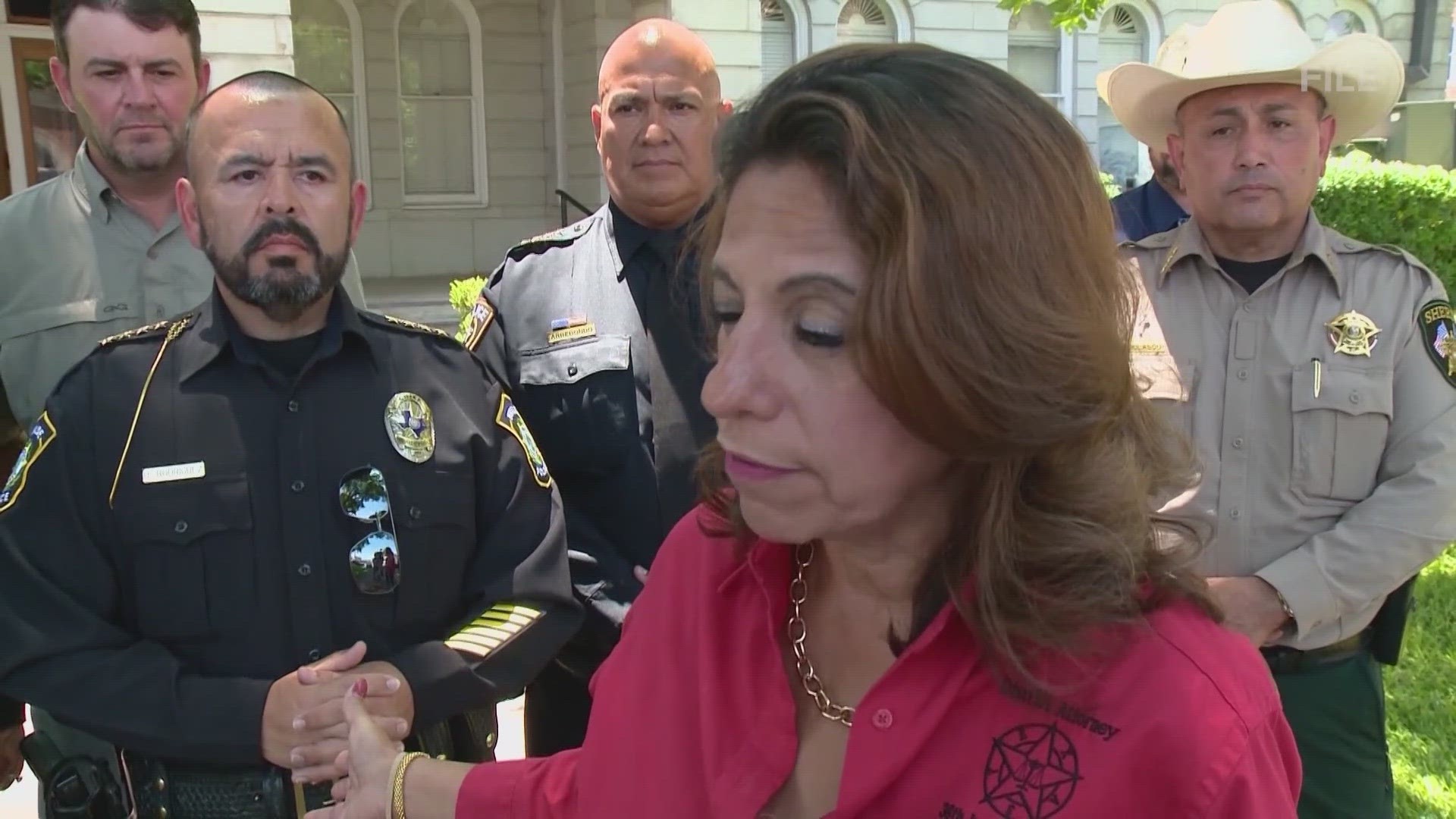UVALDE, Texas — Families who lost loved ones in the Robb Elementary School massacre say the report from the Department of Justice is the most ‘thorough investigation’ they have seen so far. In the scathing report, the DOJ found ‘cascading failures’ in the response to the mass shooting.
Nearly 400 officers waited more than an hour to enter classrooms 111 and 112 where a shooter had opened fire on students and teachers.
Many are still fighting for criminal charges against law enforcement. On Thursday, several law experts weighed in.
“Some of this could have been avoided,” said Nico LaHood, a criminal defense attorney in San Antonio. “Now, just because this could have been avoided, you still have to work within the parameters of the law.”
Uvalde District Attorney Christina Mitchell has not yet said whether she will charge any of the responding officers.
LaHood, who is a former Bexar County DA, said charges would need to fit under a specific statute.
“A potential charge of endangering a child is something that could be on the table,” said LaHood. “I think a more accurate charge could be injury to a child because omission could be done in a reckless manner. The fact they did not act could also have been in a reckless manner.”
It may be surprising, but law enforcement is not legally required to protect people, according to previous Supreme Court rulings.
Attorney Russell Lorfing is a former federal prosecutor and a St. Mary’s University graduate.
“The case law is clear; there is no legal obligation to act in a manner to protect and serve,” said Lorfing. “Although, I think there is an expectation that comes with that position.”
Laurie Levenson is a professor of criminal law and former federal prosecutor. She said federal authorities could still bring charges against the officers for violating civil rights, while negligent homicide is a possibility under Texas law.
“I think it’s a long shot for any of the officers to be criminally charged for inaction, for negligent homicide,” said Levenson. “This report doesn’t change that. It’s a terrible tragedy, but it doesn’t mean that [the officers] individually should be criminally responsible.”
She said prosecutors would have to prove some of the victims died because of law enforcement’s lengthy response.
“If you try to bring these charges, each officer would be pointing at another officer,” said Levenson. “As this report points out, there are responsibilities up and down the rank; the supervisors have responsibilities, the officers have responsibilities. But if you take one officer or just a few and try to criminally charge them, they are going to claim they are being scapegoated.”
All three experts said it will be hard to make a criminal case, however, a civil lawsuit may be successful.
“How do we say [the officers] are morally culpable for a crime?” asked Levenson. “On the other hand, should somebody have to pay for what happened here? That’s a very different question.”
“This wasn’t a mistake, it was a systematic failure of leadership and local law enforcement obligations to protect their communities,” said Lorfing. “You want justice at some level. I think the best avenue for that to happen is through a civil lawsuit that holds them accountable.”
In 2022, families of survivors filed a $27 billion class-action lawsuit. The civil suit targets both law enforcement and the Uvalde school district. It names specific officers, like DPS Director Steve McCraw and former Uvalde Police Chief Pete Arredondo, but leaves room for more officers.
“I think it’s an opportunity for a jury to say, ‘This wasn’t right,’” said Lorfing. “What I found interesting with this DOJ report is not just what it says, but what it doesn’t say. That is, ‘Had these officers acted diligently, could lives have been saved?’ You don’t need a law degree to answer that. It’s unequivocally, ‘Yes.’”

